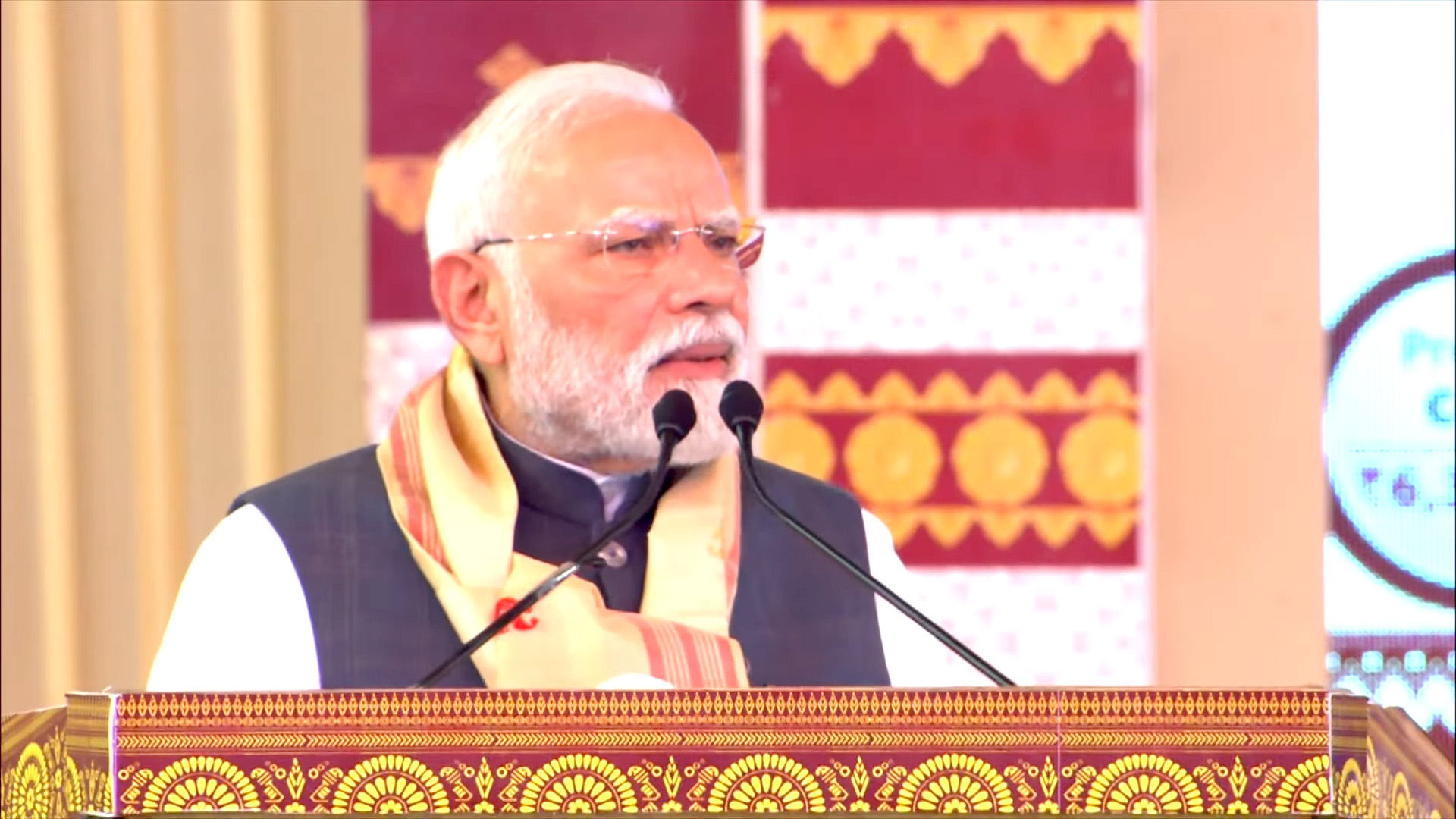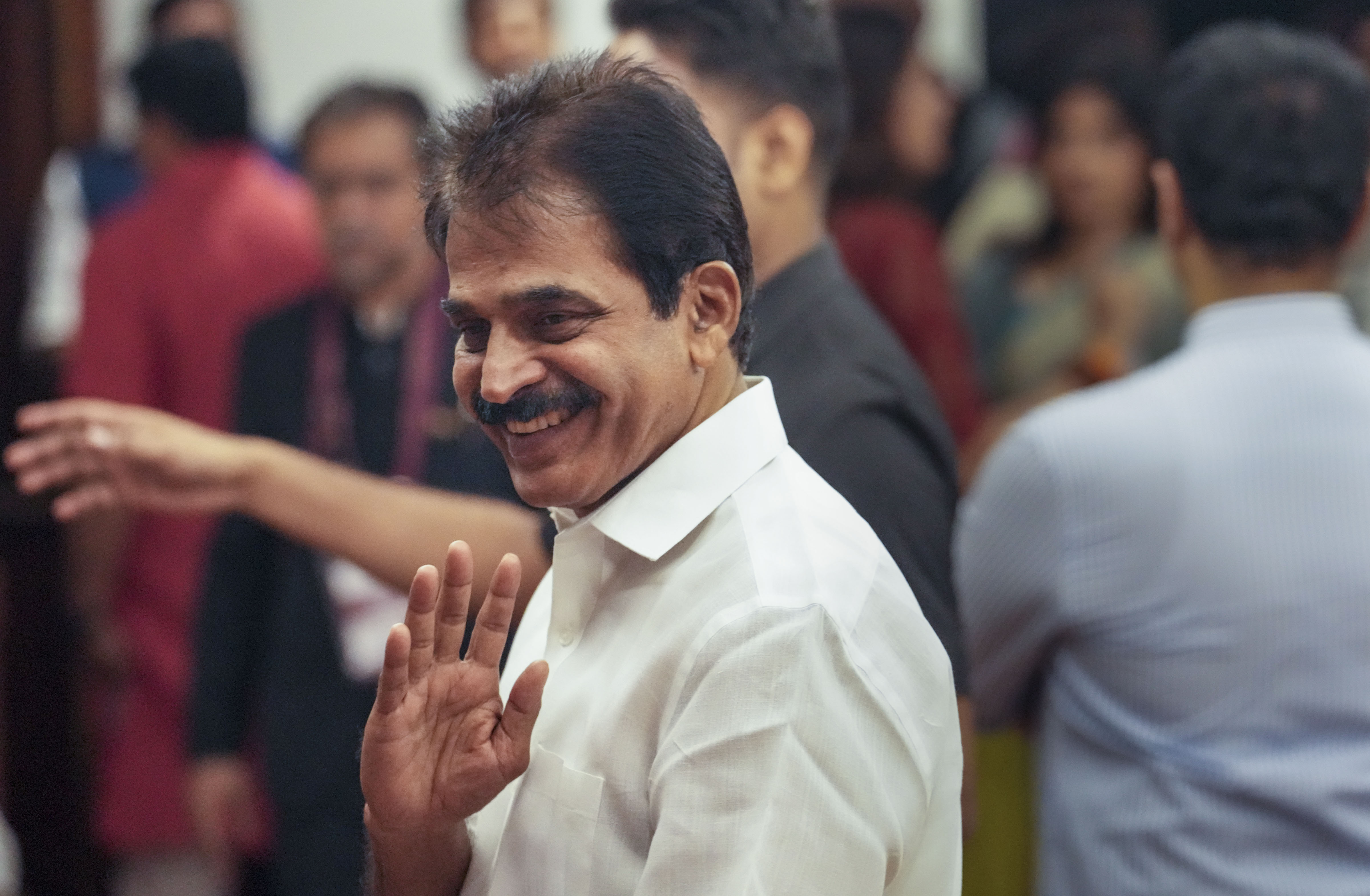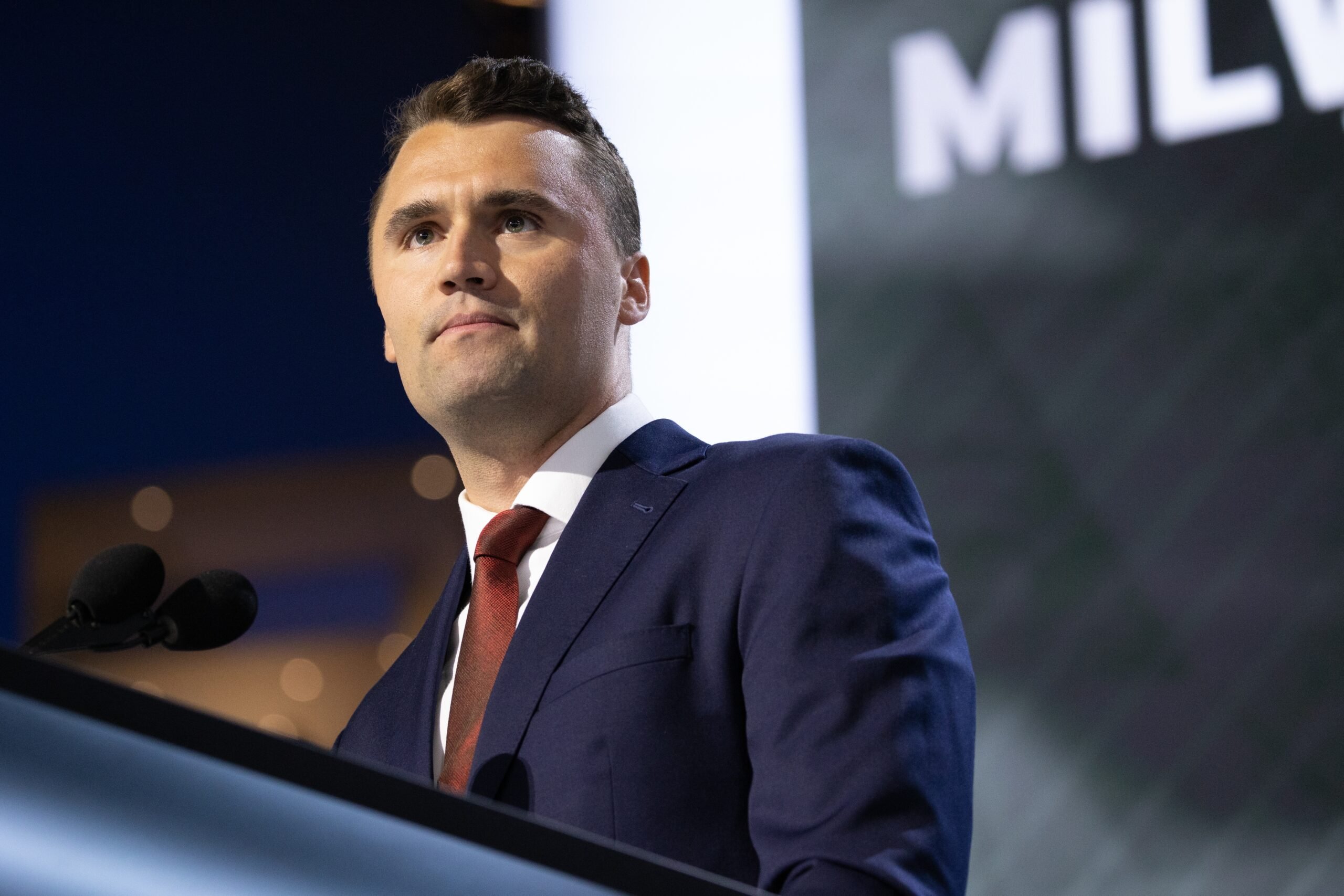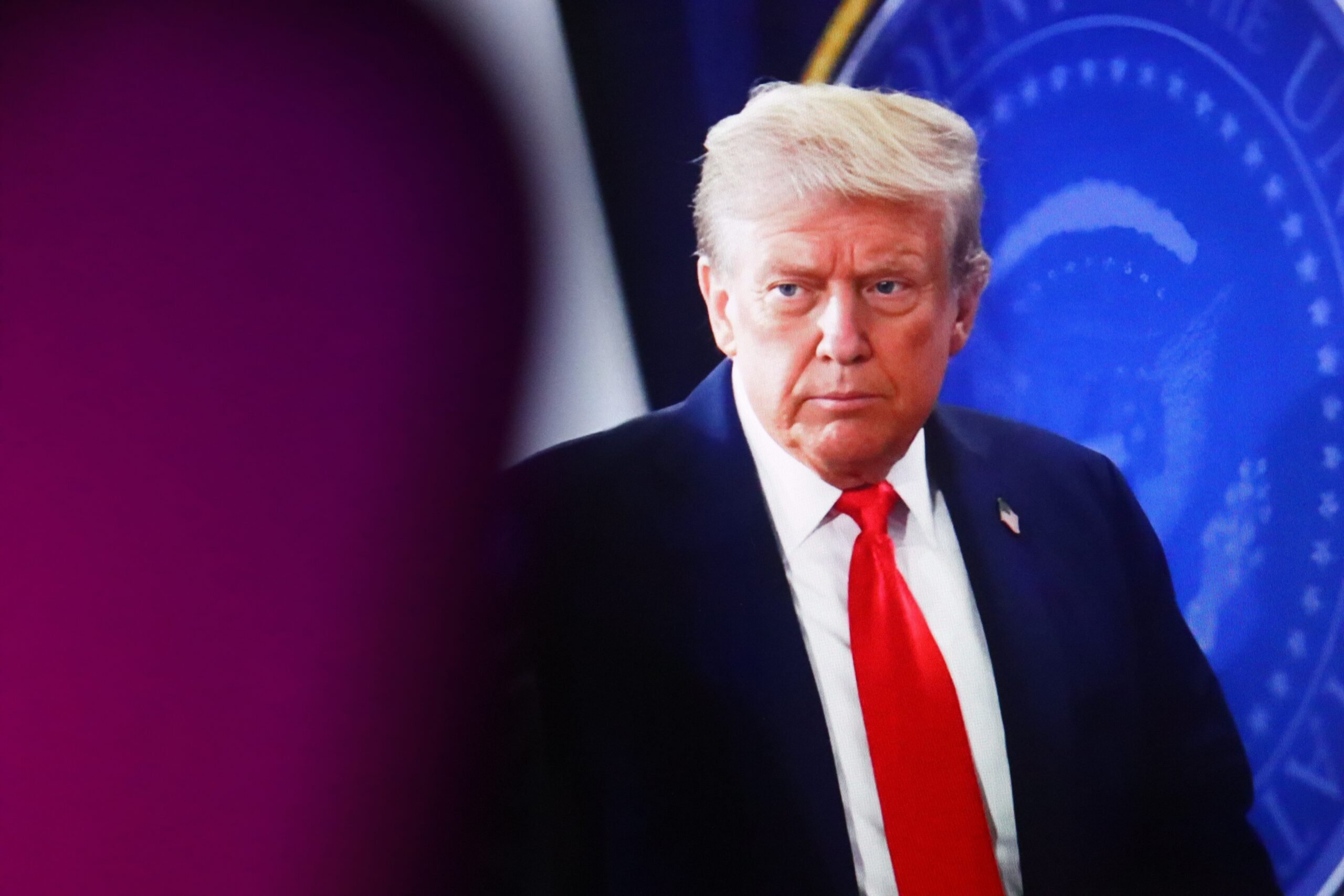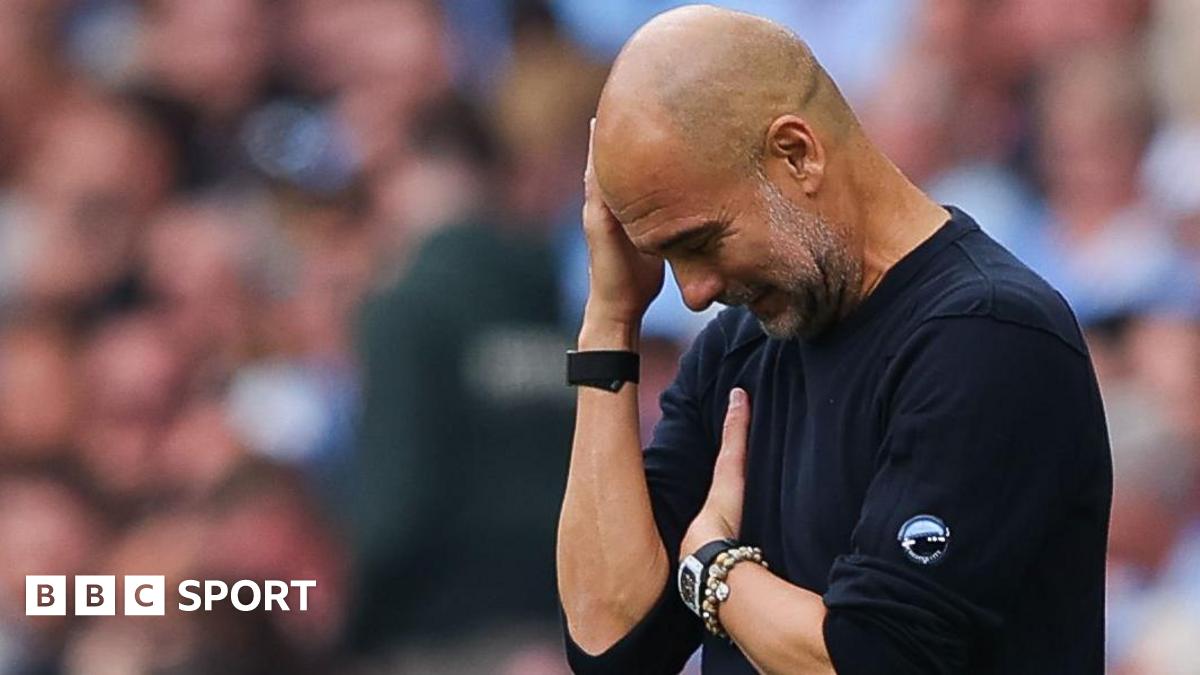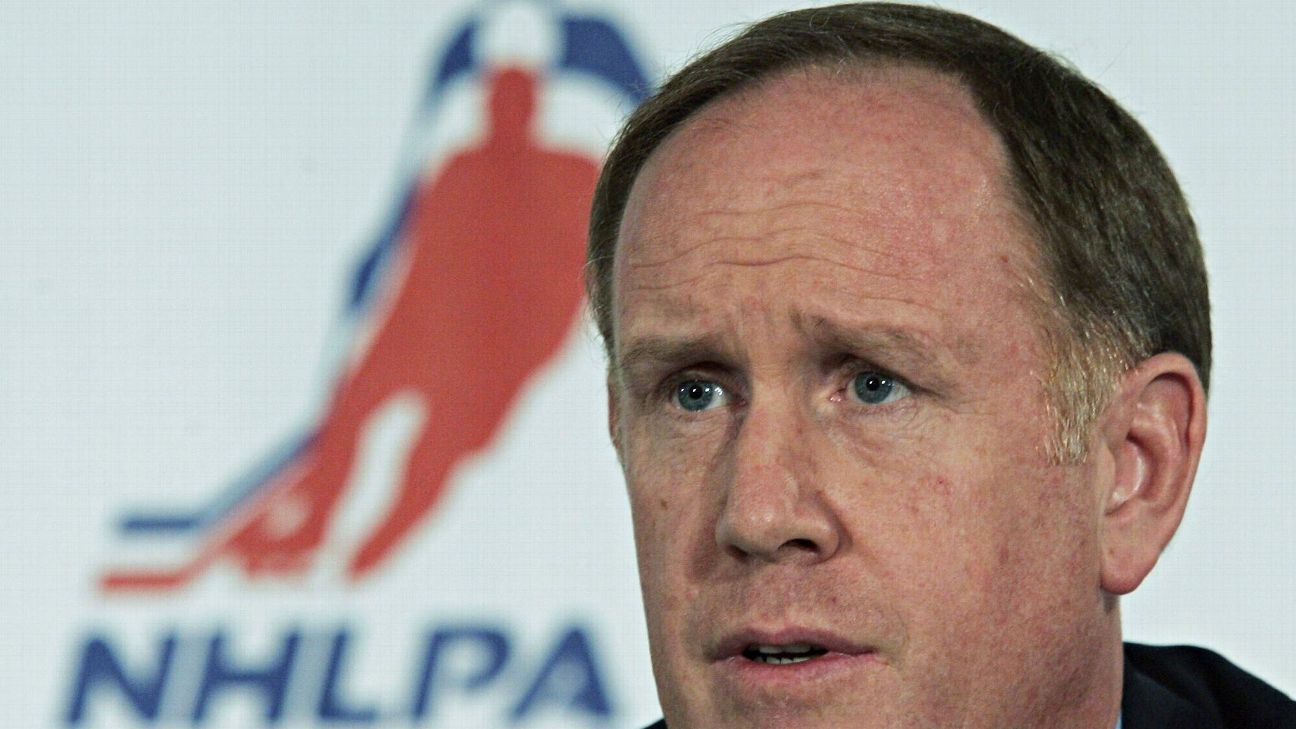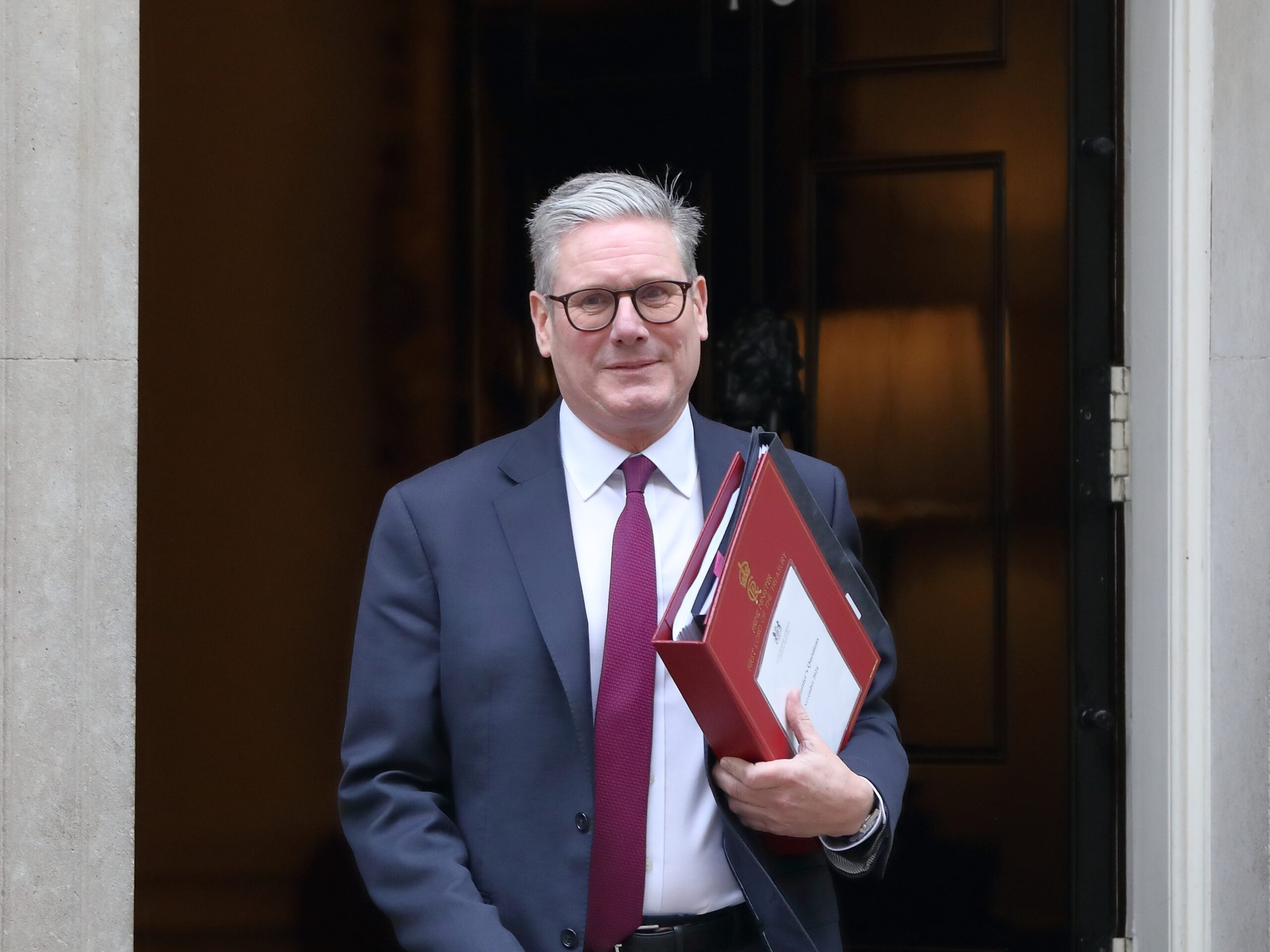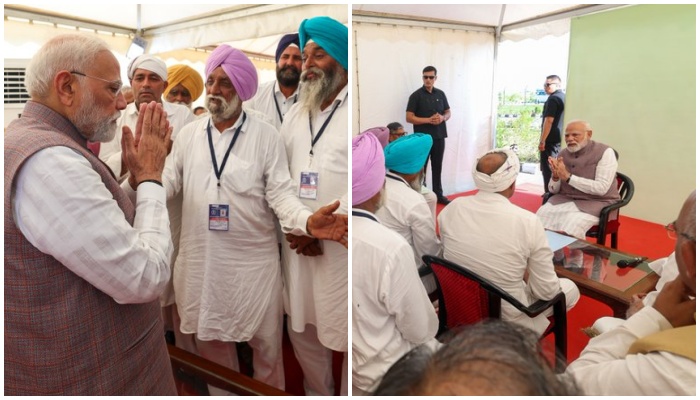US politician demands more tariffs on India after pressure tactics to curb Russian oil imports fail: Read how Modi govt is standing its ground against Western hegemony
A senior U.S. politician has demanded tougher tariffs on India after Washington’s earlier attempts to reduce New Delhi’s Russian oil imports fell flat. U.S. Congressman Brian Fitzpatrick, who recently visited New Delhi as part of a high-level delegation, has now called for even tougher tariffs on countries continuing to buy Russian oil. India, which has continued to import Russian oil to meet the energy needs of its people and refuses to bend to Western hegemony, happens to be a major target of these proposed penalties. During his trip, Fitzpatrick said Indian refiners were signalling a shift under “sustained U.S. pressure,” but the ground reality shows otherwise. Imports of Russian oil into India are actually set to rise in September, according to a report by Reuters. Still, the Republican lawmaker, who chairs the House Intelligence Committee’s CIA Subcommittee, has returned to Washington, calling for further economic action. Backing his demand, U.S. Senator Lindsey Graham released a lengthy statement supporting President Donald Trump’s push for coordinated tariffs on nations such as China, India, and Brazil. The message was blunt: if New Delhi continues to buy Russian crude, Washington wants to hit back with more tariffs. A new round of pressure tactics by another US leader In his statement, Senator Graham praised Trump for “urging America and Europe to impose serious tariffs on China for propping up Putin’s war machine by buying cheap Russian oil and gas.” He added that similar measures should extend to India and Brazil, describing it as “the right approach to bring maximum economic pressure to bear.” The free world must act, and America must lead. My statement with @RepBrianFitz: pic.twitter.com/bjdpe1ln2K— Lindsey Graham (@LindseyGrahamSC) September 13, 2025 Graham also confirmed that bipartisan lawmakers are pushing for legislation to empower Trump to act decisively. “We will be urging our colleagues, on both sides of the aisle, to join us in advancing this legislation and standing with freedom against tyranny,” he said, suggesting that new sanctions and tariffs could soon become law. This signals that Washington is preparing for a fresh round of economic coercion. Trump himself has doubled tariffs on Indian imports in recent weeks, and now members of Congress are openly calling for secondary penalties aimed squarely at New Delhi. Modi government refuses to bend But despite this sustained pressure campaign, Prime Minister Narendra Modi and his government have made it clear that India will not compromise on energy security. Far from scaling back imports, India’s refiners are preparing to increase purchases of Russian crude, taking advantage of discounted prices and diversifying its supply lines in the process. Officials in New Delhi have emphasised that this decision is not about politics but about economics and stability. By sourcing cheaper oil, India has been able to keep inflation in check and shield its 140 crore citizens from the worst of the global energy crisis. The government’s stand reflects a wider principle: India will pursue policies in its own national interest, regardless of Western virtue signalling. EAM Jaishankar pushes back against criticism External Affairs Minister S. Jaishankar has been particularly vocal in defending India’s oil imports. Speaking in Moscow on 22nd August, he dismissed accusations that India was undermining global stability. “We are not the biggest purchasers of Russian oil; that is China. We are not the biggest purchasers of LNG; that is the European Union. We are not the country which has the biggest trade surge with Russia after 2022,” he said, adding that it was “perplexing” to see India singled out. Jaishankar also reminded the international community that India’s oil purchases had in fact stabilised global markets. “We are a country where the Americans have said for the last few years that we should do everything to stabilise the world energy market, including buying oil from Russia. Incidentally, we also buy oil from the U.S., and that amount has increased. So honestly, we are very perplexed at the logic of the argument,” he pointed out. At another event in late August, the minister delivered a clear message: “If you don’t like it, don’t buy it. But Europe buys, America buys. If you don’t like it, don’t buy from us.” His words struck a chord, highlighting the double standards at play. While Europe continues to import Russian LNG and the U.S. still purchases Russian uranium, India is being pressured to cut ties. PM Modi’s strong response Prime Minister Modi has also made his stance clear. “The pressure on us may increase, but we will bear it all.” He emphasised that national interests of farmers, small and medium-scale industries, and common citizens are given priority. For PM Modi, securing affordable energy is not negotiable, and no amount of external pressure can override that. This confiden
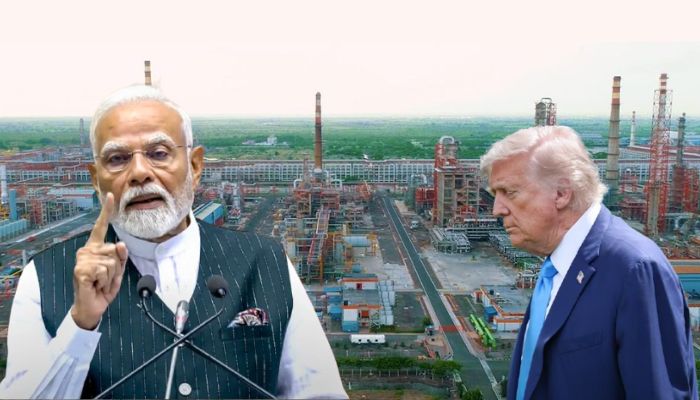


A senior U.S. politician has demanded tougher tariffs on India after Washington’s earlier attempts to reduce New Delhi’s Russian oil imports fell flat. U.S. Congressman Brian Fitzpatrick, who recently visited New Delhi as part of a high-level delegation, has now called for even tougher tariffs on countries continuing to buy Russian oil.
India, which has continued to import Russian oil to meet the energy needs of its people and refuses to bend to Western hegemony, happens to be a major target of these proposed penalties.
During his trip, Fitzpatrick said Indian refiners were signalling a shift under “sustained U.S. pressure,” but the ground reality shows otherwise.
Imports of Russian oil into India are actually set to rise in September, according to a report by Reuters. Still, the Republican lawmaker, who chairs the House Intelligence Committee’s CIA Subcommittee, has returned to Washington, calling for further economic action.
Backing his demand, U.S. Senator Lindsey Graham released a lengthy statement supporting President Donald Trump’s push for coordinated tariffs on nations such as China, India, and Brazil. The message was blunt: if New Delhi continues to buy Russian crude, Washington wants to hit back with more tariffs.
A new round of pressure tactics by another US leader
In his statement, Senator Graham praised Trump for “urging America and Europe to impose serious tariffs on China for propping up Putin’s war machine by buying cheap Russian oil and gas.” He added that similar measures should extend to India and Brazil, describing it as “the right approach to bring maximum economic pressure to bear.”
The free world must act, and America must lead.
— Lindsey Graham (@LindseyGrahamSC) September 13, 2025
My statement with @RepBrianFitz: pic.twitter.com/bjdpe1ln2K
Graham also confirmed that bipartisan lawmakers are pushing for legislation to empower Trump to act decisively. “We will be urging our colleagues, on both sides of the aisle, to join us in advancing this legislation and standing with freedom against tyranny,” he said, suggesting that new sanctions and tariffs could soon become law.
This signals that Washington is preparing for a fresh round of economic coercion. Trump himself has doubled tariffs on Indian imports in recent weeks, and now members of Congress are openly calling for secondary penalties aimed squarely at New Delhi.
Modi government refuses to bend
But despite this sustained pressure campaign, Prime Minister Narendra Modi and his government have made it clear that India will not compromise on energy security. Far from scaling back imports, India’s refiners are preparing to increase purchases of
Russian crude, taking advantage of discounted prices and diversifying its supply lines in the process.
Officials in New Delhi have emphasised that this decision is not about politics but about economics and stability. By sourcing cheaper oil, India has been able to keep inflation in check and shield its 140 crore citizens from the worst of the global energy crisis. The government’s stand reflects a wider principle: India will pursue policies in its own national interest, regardless of Western virtue signalling.
EAM Jaishankar pushes back against criticism
External Affairs Minister S. Jaishankar has been particularly vocal in defending India’s oil imports. Speaking in Moscow on 22nd August, he dismissed accusations that India was undermining global stability. “We are not the biggest purchasers of Russian oil; that is China. We are not the biggest purchasers of LNG; that is the European Union. We are not the country which has the biggest trade surge with Russia after 2022,” he said, adding that it was “perplexing” to see India singled out.
Jaishankar also reminded the international community that India’s oil purchases had in fact stabilised global markets. “We are a country where the Americans have said for the last few years that we should do everything to stabilise the world energy market, including buying oil from Russia. Incidentally, we also buy oil from the U.S., and that amount has increased. So honestly, we are very perplexed at the logic of the argument,” he pointed out.
At another event in late August, the minister delivered a clear message: “If you don’t like it, don’t buy it. But Europe buys, America buys. If you don’t like it, don’t buy from us.” His words struck a chord, highlighting the double standards at play. While Europe continues to import Russian LNG and the U.S. still purchases Russian uranium, India is being pressured to cut ties.
PM Modi’s strong response
Prime Minister Modi has also made his stance clear. “The pressure on us may increase, but we will bear it all.” He emphasised that national interests of farmers, small and medium-scale industries, and common citizens are given priority. For PM Modi, securing affordable energy is not negotiable, and no amount of external pressure can override that.
This confidence is backed by numbers. India is currently importing over a million barrels of Russian crude per day, much of it at a discount compared to global benchmarks. A more recent report by the news agency even said India would get Russian oil at a discounted price, with a barrel of Urals crude reportedly $3–$4 cheaper than Brent.
Trump’s 50% tariffs on India
The latest remarks by the US congressman comes days after US President Donald Trump‘s 50% tarrifs on Indian imports took effect on August 27. One half of these duties were imposed over India’s oil trade with Russia, which the US officials claim indirectly funds the war in Ukraine.
As Fitzpatrick said that Indian refiners may be mulling reducing Russian oil imports, he said the move was “a consequential shift that directly undermines Moscow’s ability to finance its war in Ukraine”.
Why India continues buying Russian oil
Explaining India’s position further, Jaishankar said that crude oil purchases from Russia not only support India’s domestic needs but also help keep international prices stable. “Yes, it is in our national interest, but it is also in global interest,” he said.
He recently visited Russia for annual bilateral talks, where discussions included expanding trade. Meanwhile, Jaishankar reaffirmed that India’s stand on the Russian-Ukrainian conflict is clear-cut. “We desire an early cessation of hostilities,” he mentioned, reiterating that India desires peace while managing its economic interests.
Petroleum Minister Hardeep Puri also emphasised that India has diversified its oil sources, now buying from nearly 40 countries instead of 27 earlier, which gives it flexibility in case of disruptions. This diversification strategy strengthens energy security, making India less vulnerable to geopolitical shocks.
Negotiations with Washington stall
Despite repeated visits and negotiations, U.S. efforts to persuade India have failed. Fitzpatrick’s office claimed that Indian refiners were preparing to scale back Russian imports, but data tells another story.
According to a report by Reuters, Reliance Industries and Rosneft-backed Nayara Energy are actually preparing to increase their purchases by 10–20% this month. That means an additional 150,000-300,000 barrels per day will be flowing in from Russia.
This directly contradicts Washington’s narrative that pressure tactics are working. Instead, the opposite is happening: India is doubling down. The recent reports also indicate that India is buying Russian oil at discounts, which fortifies its economy but disappoints American lawmakers.
Strengthening relations with Russia and China
India’s strengthening ties with Russia and China are another sign of India’s not bowing down, and PM Modi is standing his ground. Modi and Russian President Vladimir Putin solidified connections during their latest meeting at the Shanghai Cooperation Organisation (SCO) Summit in China.
Interactions in Tianjin continue! Exchanging perspectives with President Putin and President Xi during the SCO Summit. pic.twitter.com/K1eKVoHCvv
— Narendra Modi (@narendramodi) September 1, 2025
The two leaders, hold a bilateral meeting on the sidelines of the Summit, meeting for the first time after the US imposed 50 per cent tariffs on India over its Russian oil imports.
During his bilateral meeting with Russian President Vladimir Putin in Tianjin, China, Prime Minister Narendra Modi also addressed the war in Ukraine and said, “We have been continuously discussing the ongoing conflict in Ukraine. We welcome all the recent efforts for peace. We hope that all parties will move forward constructively. A way has to be found to end the conflict as soon as possible and establish lasting peace. This is the call of the entire humanity.”
Always a delight to meet President Putin! pic.twitter.com/XtDSyWEmtw
— Narendra Modi (@narendramodi) September 1, 2025
“We welcome all the recent efforts for peace,” PM Modi said in the meeting.
This was not just a symbolic friendship. It was a calculated statement, India will not be bullied out of its choices.
India’s increasing proximity to Russia is also counterbalanced by its engagement in multilateral forums such as BRICS and SCO, where China dominates. For New Delhi, both strategic and economic opportunities are on offer through such platforms, complementing its autonomy from Western pressure.
Double standards exposed
The larger problem lies in the hypocrisy of Western nations. Europe, which still imports massive amounts of Russian LNG, is not penalised. The U.S., which continues buying Russian uranium for its nuclear industry, is not questioned. But India, which has openly explained its position and acted transparently, is singled out for criticism.
In 2022, the European Union paid over $120 billion to Russia for fossil fuels. In the same period, India’s payments were less than half that, around $50 billion. Despite this, Western governments have focused their criticism on New Delhi, ignoring their own continued dependence on Russian energy.
Jaishankar has not missed an opportunity to call out this double standard. “Arguments used to target India have not been applied to China,” he pointed out, adding that many of the same critics were silent when global oil prices spiked in 2022 and India’s Russian purchases helped stabilise markets.
India’s clear message to the world
At the heart of India’s stance is a simple principle: decisions will be made in the national interest. Jaishankar has asserted that New Delhi will not compromise on energy security, time and again. Modi has asserted the same, reiterating that India will not yield to foreign pressure.
The Trump administration’s threats of tariffs and congressional resolutions will likely take up space on Washington’s front pages, but are not about to alter policy in New Delhi. India has demonstrated that it can resist pressure, defend its economy, and remain a player in the global community by appealing for peace and diplomacy in Ukraine.
The latest calls for additional tariffs, led by Congressman Fitzpatrick and supported by Senator Graham, underline Washington’s frustration. Negotiations have failed, tariffs have not worked, and India’s oil imports from Russia are still rising. For the Modi government, this is a matter of sovereignty and survival, cheap oil keeps the economy running and citizens protected from inflation.


